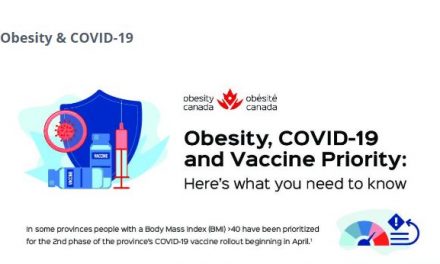The obesity field is kicking off 2023 at a frantic pace! Having treated people with obesity for over 20 years, I have never before witnessed such excitement from both patients and health care professionals about weight management medication. The flip side of this excitement, however, is that shortages of weight loss medication have started to become a problem.
Why is there now so much excitement for weight management medication?
The main reason is that we have (very happily!) entered an era of unsurpassed efficacy of weight management medications. Semaglutide 2.4mg (trade name Wegovy) is the first of these highly effective obesity treatments, providing 16-18% weight loss together with lifestyle intervention in the clinical trial program. (Note: semaglutide has been available in Canada since 2018 at lower doses for the treatment of type 2 diabetes, trade name Ozempic). In the US, where Wegovy has been available on shelves for over a year, it has reached superstardom not only in previously unseen efficacy, but also literally superstars, with several social media moguls singing its praises. Consequently, the demand has been so extreme and rapid that supply just can’t keep up, and countries like Canada have thus not had Wegovy yet reach our pharmacies (despite being approved since November 2021). Tirzepatide (trade name Mounjaro) is another medication that has shown impressive weight loss efficacy of 21% (almost 50lb) in the first major weight management clinical trial. Tirzepatide is not yet approved as a weight management medication anywhere in the world as the studies for weight loss are not yet completed, but it is approved as a treatment of type 2 diabetes in both Canada and USA. Tirzepatide is available in the US. Again, demand is oustripping supply, and tirzepatide has now been added to the FDA drug shortages list. We don’t yet know when we will get tirzepatide onto Canadian pharmacy shelves.
In addition, the concept that obesity is a chronic disease that needs treatment is finally taking hold – I hope. For years, we (Obesity Canada) and many other medical obesity organizations around the world have been working tirelessly to communicate that obesity is a health condition, not a choice, and not simply a ‘lifestyle’ issue. Our Obesity Canada clinical practice guidelines describes the Three Pillars of treatment of obesity (psychological support, weight management medication, and/or bariatric surgery), which support an improved ability to follow a healthy lifestyle. While the media is traditionally guilty of terrible, scientifically incorrect, shaming articles about obesity, I was happy to see CBS’s 60 Minutes kick off this new year with an episode titled ‘Recognizing and treating obesity as a disease’.
With this ramped up energy and enthusiasm for weight loss medications, I am concerned about more than just medication shortages:
- Medications for weight management are intended for people with elevated weight, for weight loss and improvement in health (metabolic, mechanical, mental, and/or quality of life). I have unfortunately seen social media outlets rife with stories highly suggestive of inappropriate use of weight loss medications. These stories depict individuals who do not seem to have obesity in any sense, but are showcasing their use of obesity medication to drive their weight from slim to slimmer for modeling jobs and so forth.
- At the frenetic pace of demand, corners mustn’t be cut in counseling about how these medications work and their potential side effects, nor in support of patients as they get comfortable using and titrating (gradually increasing dosage) of these medications. The gradual titration of these medications, and counseling and navigating possible gastrointestinal side effects (such as nausea, diarrhea, constipation), are important. If medications are prescribed without these important points, some people may not do well with dose titration or side effects.
- Obesity treatment is intended to be long term. These treatments are not intended to slim up temporarily for a gala event or a beach vacation (ideas which some social media stories have suggested). When weight loss treatment is stopped, the studies consistently show that weight gain ensues. This is due to the natural biology of changes in hormones, and a drop in our resting metabolism, that defend our weight. Check out recent clinical trial data on semaglutide 2.4mg as blogged here, to see what happens a year after stopping treatment.
- Weight loss medication is expensive, further broadening the socioeconomic health divide. In most countries, only people with financial capability to pay can get access to weight management medication. In Canada, there is NO public reimbursement for obesity medication, and only about a third of private insurers pay for these treatments. Thus, socioeconomics often determine who gets weight loss medication – those with a great medical insurance plan, and those who can afford to pay out of pocket. Our recent 2022 Obesity Canada Pharmacotherapy Guidelines Update includes a strong message of advocacy for coverage for weight management medications built right into our Decision Tool guiding on choice of medication – see here (and here for resources and a summary video I recorded) for more on our chapter! (Note: I was the lead author of this chapter.)
BOTTOM LINE: Overall, the news is overwhelmingly positive. Finally, we are achieving excellent efficacy with weight management medications, reaching weight loss successes that improve health and provide outstanding and sustained weight loss for many people. But it’s important that medication is prescribed for the right reasons, prescribed long term, and that access should not be limited to advantaged socioeconomic groups.
Disclaimer: I am/have been investigator in the tirzepatide and semaglutide clinical trial programs for obesity and type 2 diabetes. I receive honoraria as a continuing medical education speaker and consultant from the makers of semaglutide (Novo Nordisk) and tirzepatide (Eli Lilly).
Check me out on twitter! @drsuepedersen
Share this blog post using your favorite social media link below!
www.drsue.ca © 2023












